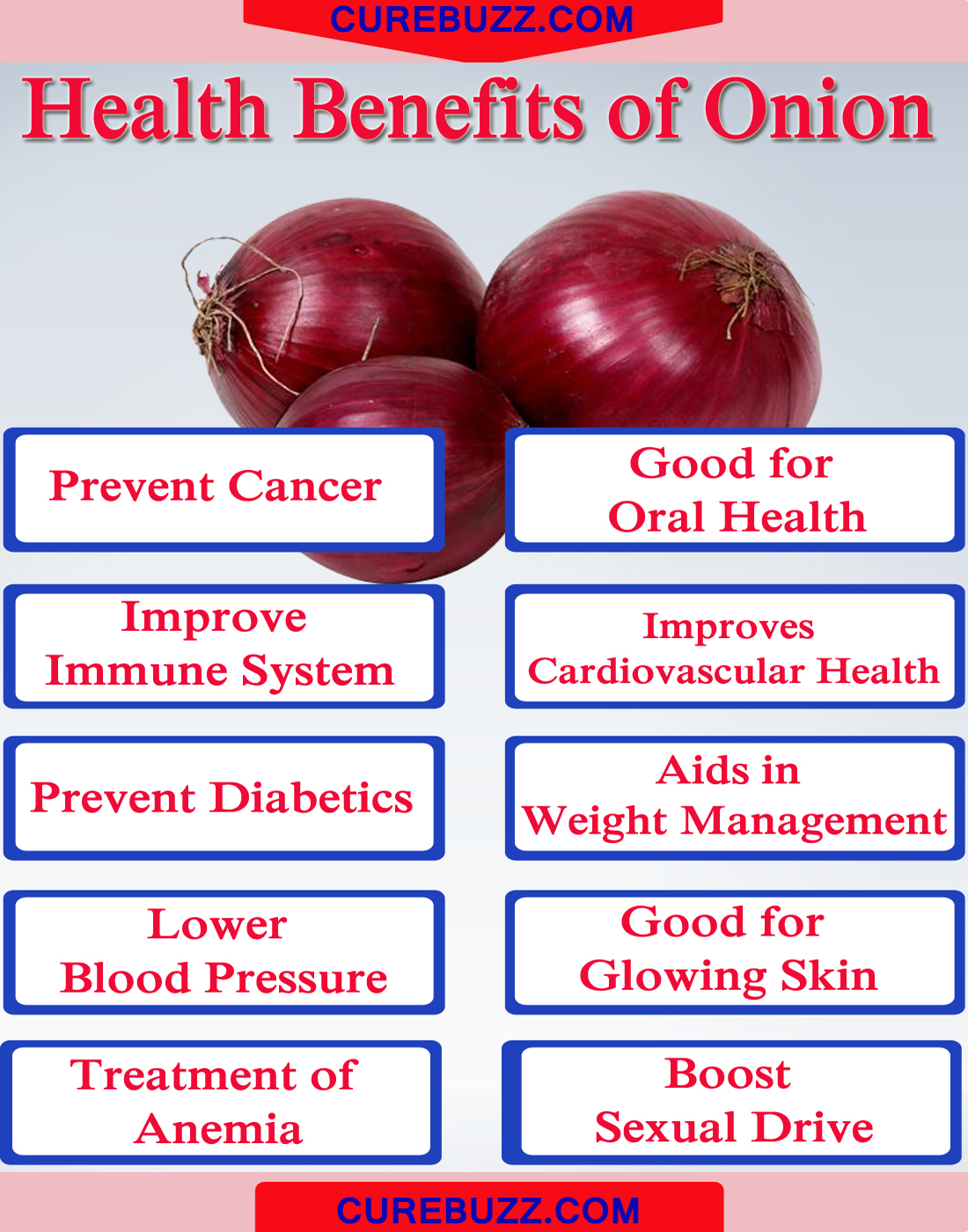Onions Health Benefits
onions health benefits
Onions are not just a staple ingredient in countless savory recipes, they also offer a host of health benefits. From boosting immunity to promoting heart health, these versatile vegetables pack a nutritional punch. In this article, we’ll explore the various ways in which onions can enhance your well-being. Let’s dive in!
Nutritional Profile of Onions
Before we delve into the health benefits, let’s take a moment to appreciate the nutritional value of onions. Here are some key nutrients found in onions:
1. Fiber: Onions are a good source of dietary fiber, which aids digestion and promotes gut health.
2. Vitamins: They are rich in vitamins C, B6, and folate, all of which play vital roles in supporting overall health.
3. Minerals: Onions provide essential minerals such as potassium and manganese, which are necessary for optimal bodily functions.
4. Antioxidants: Onions contain antioxidants, such as quercetin and sulfur compounds, which help combat oxidative stress and inflammation in the body.
1. Boosts Immunity
The Role of Onions in Immune Function
Onions can help strengthen your immune system thanks to their high content of antioxidants and phytonutrients. These compounds help protect your cells from damage caused by harmful free radicals and enhance the body’s ability to fight off infections and diseases.
Vitamin C: A Powerful Immune Booster
One of the standout nutrients in onions is vitamin C, an immune-boosting powerhouse. Vitamin C promotes the production of white blood cells, which are key players in the body’s defense against pathogens. Consuming onions regularly can help fortify your immune system and reduce the risk of illnesses like the common cold.
2. Supports Heart Health
Lowering Cholesterol Levels
Onions contain compounds that may have a positive impact on heart health. Studies have suggested that regular onion consumption can help lower total cholesterol levels and reduce the levels of LDL (bad) cholesterol, which is associated with an increased risk of heart disease.
Reducing Blood Pressure
The sulfur compounds present in onions have been found to have vasodilatory effects, meaning they can widen blood vessels and improve blood flow. By reducing blood pressure, onions help lower the risk of cardiovascular problems, such as hypertension and stroke.
3. Anti-Inflammatory Properties
Quercetin: A Potent Anti-Inflammatory Agent
Onions are rich in quercetin, a flavonoid with powerful anti-inflammatory properties. Quercetin has been linked to reduced inflammation in the body, which may help alleviate symptoms of chronic inflammatory conditions like arthritis and allergies.
Sulfur Compounds: Fighting Inflammation
The sulfur compounds in onions also contribute to their anti-inflammatory effects. These compounds help inhibit the production of pro-inflammatory substances, potentially reducing the risk of chronic inflammation-related diseases, such as heart disease and certain types of cancer.
4. Digestive Health
Promoting Gut Health
The high fiber content in onions is beneficial for maintaining a healthy digestive system. Fiber adds bulk to the stool, facilitating regular bowel movements and preventing constipation. Additionally, onions contain prebiotics, which nourish the beneficial bacteria in your gut, promoting a healthy microbiome.
Reducing the Risk of Colon Cancer
The combination of fiber and antioxidants found in onions may have a protective effect against colon cancer. Studies have shown that regular onion consumption is associated with a lower risk of developing this form of cancer.
5. Blood Sugar Regulation
Containing Chromium: Balancing Blood Sugar Levels
Onions contain a trace mineral called chromium, which plays a role in regulating blood sugar levels. Chromium enhances the action of insulin, the hormone responsible for transporting sugar from the bloodstream into cells. By improving insulin sensitivity, onions can help keep your blood sugar stable.
Antioxidant Effects: Decreasing Diabetes Risk
The antioxidants in onions help combat oxidative stress, a factor implicated in the development of diabetes. By protecting your cells from damage, onions may help reduce the risk of developing type 2 diabetes.
Frequently Asked Questions
1: Can eating onions help with weight loss?
While onions alone cannot guarantee weight loss, they can be a helpful addition to a well-balanced diet. Onions are low in calories and high in fiber, which can promote satiety and reduce overall calorie intake.
2: Are there any potential side effects of eating onions?
In general, onions are safe to consume for most individuals. However, some people may experience digestive discomfort, such as bloating or gas, due to the high fiber content. It’s also worth noting that individuals with onion allergies should avoid consuming them.
Final Thoughts
Onions are not only flavorful additions to your meals but also offer a wide range of health benefits. From boosting your immune system to supporting heart health and promoting digestion, this versatile vegetable deserves a place in your diet. Whether you sauté them, roast them, or enjoy them raw in salads, onions can enhance both the taste and the nutritional value of your meals. So, don’t hold back when it comes to adding onions to your favorite dishes!






